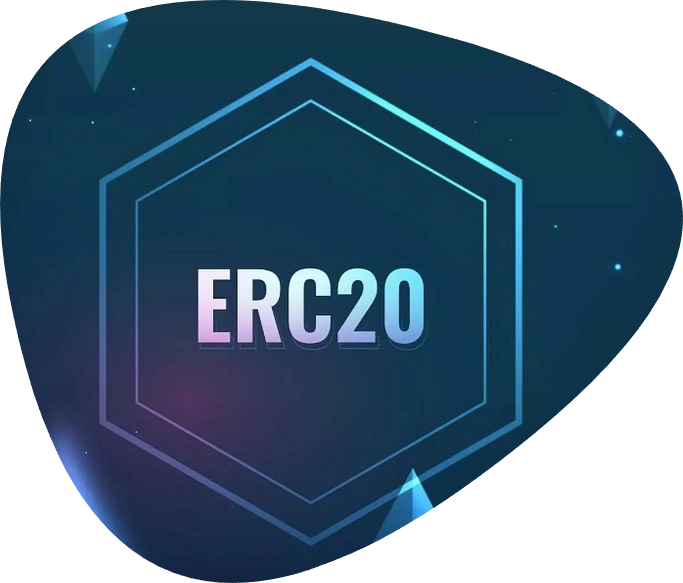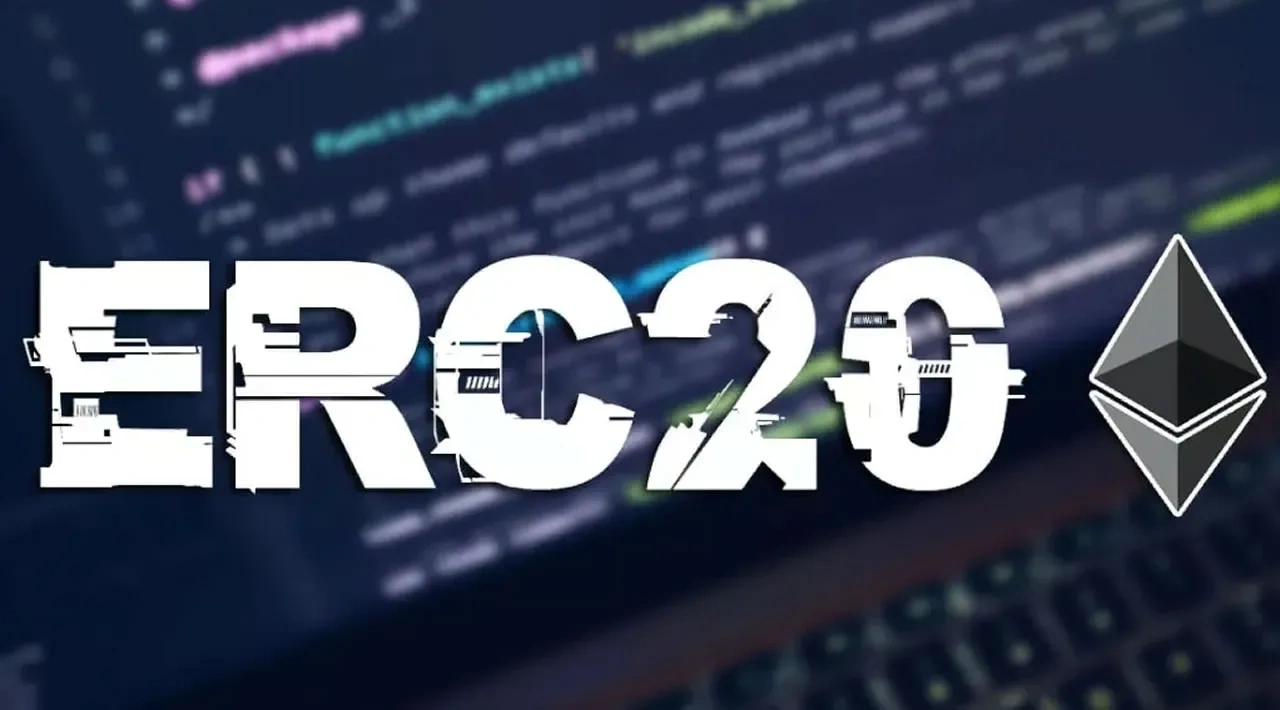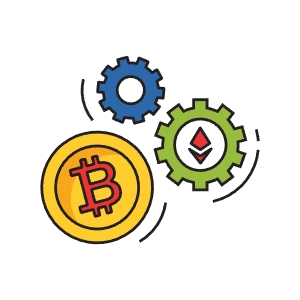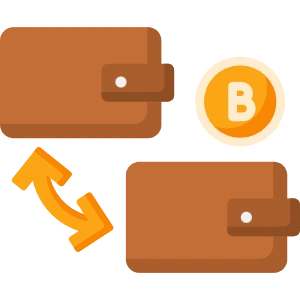ERC20 Development
ERC20 Development involves creating tokens on the Ethereum blockchain that comply with the ERC20 token standard, which defines a common set of rules for fungible tokens. These tokens are interchangeable, divisible, and transferable, making them ideal for use in cryptocurrencies, utility tokens, governance tokens, stablecoins, and ICO/IDO projects. By adhering to the ERC20 standard, developers ensure compatibility with Ethereum wallets, exchanges, and smart contracts, enabling seamless integration across the Ethereum ecosystem. ERC20 tokens leverage smart contracts to automate transactions, enforce supply limits, manage balances, and handle approvals, ensuring security, transparency, and reliability.


ERC20 Token Infrastructure – Secure, Flexible, and Value-Driven
The ERC20 Token Infrastructure provides a robust platform for creating, managing, and deploying ERC20-compliant tokens on the Ethereum blockchain. This infrastructure allows businesses, startups, and developers to launch secure and scalable tokens for a wide range of use cases, including utility tokens, governance tokens, stablecoins, fundraising campaigns, and DeFi projects. By adhering to the ERC20 standard, tokens developed on this infrastructure are fully compatible with Ethereum wallets, decentralized exchanges, and other blockchain protocols. The system leverages smart contracts to automate token transfers, approvals, and supply management, ensuring transparency, security, and efficiency in all operations.
Enterprise ERC20 Token Platform – Robust, Secure, and Scalable
The Enterprise ERC20 Token Platform is a comprehensive solution for creating, managing, and deploying ERC20-compliant tokens on the Ethereum blockchain tailored for businesses and large-scale projects. This platform enables enterprises to launch secure, scalable, and fully interoperable tokens for use cases such as utility tokens, governance tokens, stablecoins, fundraising campaigns, and DeFi applications.

ERC20 Standard Compliance
Fully adheres to the ERC20 token standard, ensuring interoperability with Ethereum wallets, exchanges, and DeFi platforms for seamless integration.

Security & Transparency
Blockchain-backed smart contracts provide immutable, tamper-proof, and fully auditable transactions, guaranteeing trust and reliability.

Scalable Architecture
Designed to support high-volume transactions and enterprise-scale deployments, ensuring consistent performance as your platform grows.

Customizable Token Logic
Enterprises can define total supply, token name, symbol, decimals, and governance rules, tailoring tokens to specific business needs.

Automated Token Management
Smart contracts automate token transfers, approvals, and balance tracking, reducing manual effort and operational errors.

Wallet & Exchange Integration
Compatible with popular Ethereum wallets and exchanges, enabling secure trading, liquidity, and global reach for your ERC20 tokens.
Advanced ERC20 Token Architecture – Transparent, Scalable, and Enterprise-Ready
The Advanced ERC20 Token Architecture provides a robust, enterprise-grade framework for creating, managing, and deploying ERC20-compliant tokens on the Ethereum blockchain. Designed for businesses, startups, and large-scale projects, this architecture ensures that tokens are transparent, secure, and fully interoperable across Ethereum wallets, exchanges, and DeFi protocols.

ERC20 Token Network – Reliable, Transparent, and Global
The ERC20 Token Network is an enterprise-ready platform for designing, deploying, and managing ERC20-compliant tokens on the Ethereum blockchain. It provides a reliable, transparent, and globally accessible infrastructure for businesses, startups, and developers to launch tokens for a variety of applications, including utility tokens, governance tokens, stablecoins, fundraising campaigns, and DeFi projects.
By adhering to the ERC20 standard, the network ensures full compatibility with Ethereum wallets, decentralized exchanges, and smart contract ecosystems, enabling seamless integration and interoperability. The platform leverages smart contract automation to manage token transfers, approvals, and balance tracking, ensuring secure, transparent, and efficient operations for global participants.
FAQ
What is ERC20 Development?
ERC20 Development involves creating fungible tokens on the Ethereum blockchain that comply with the ERC20 standard. These tokens are interchangeable, divisible, and widely supported by Ethereum wallets and decentralized exchanges, making them ideal for cryptocurrencies, utility tokens, stablecoins, and fundraising projects.
What are the main features of an ERC20 token?
ERC20 tokens are fungible, divisible, and transferable. They follow a standard set of functions like ensuring interoperability, transparency, and compatibility across Ethereum wallets, smart contracts, and exchanges.
Which industries can benefit from ERC20 tokens?
ERC20 tokens are widely used in finance, DeFi, gaming, NFTs, real estate, and supply chain. They can serve as utility tokens, governance tokens, stablecoins, fundraising assets, or rewards, providing flexibility across multiple business models.
How secure are ERC20 tokens?
ERC20 tokens inherit Ethereum’s blockchain security, ensuring tamper-proof, immutable, and transparent transactions. Security also depends on proper smart contract coding and audits to prevent vulnerabilities and exploits.
Can ERC20 tokens be customized?
Yes. Developers can define token name, symbol, total supply, decimal precision, and governance rules, tailoring tokens to specific business or project requirements while maintaining ERC20 standard compliance.
How are ERC20 tokens deployed and managed?
ERC20 tokens are deployed through Ethereum smart contracts. Once deployed, smart contracts handle token transfers, approvals, and balances automatically, ensuring efficient and trustless operations without intermediaries.
What are the benefits of ERC20 Development for businesses?
ERC20 Development provides reliability, transparency, and global reach. Businesses gain seamless wallet and exchange integration, automated token management, liquidity for fundraising, and a scalable foundation for DeFi, NFT, or enterprise blockchain applications.

